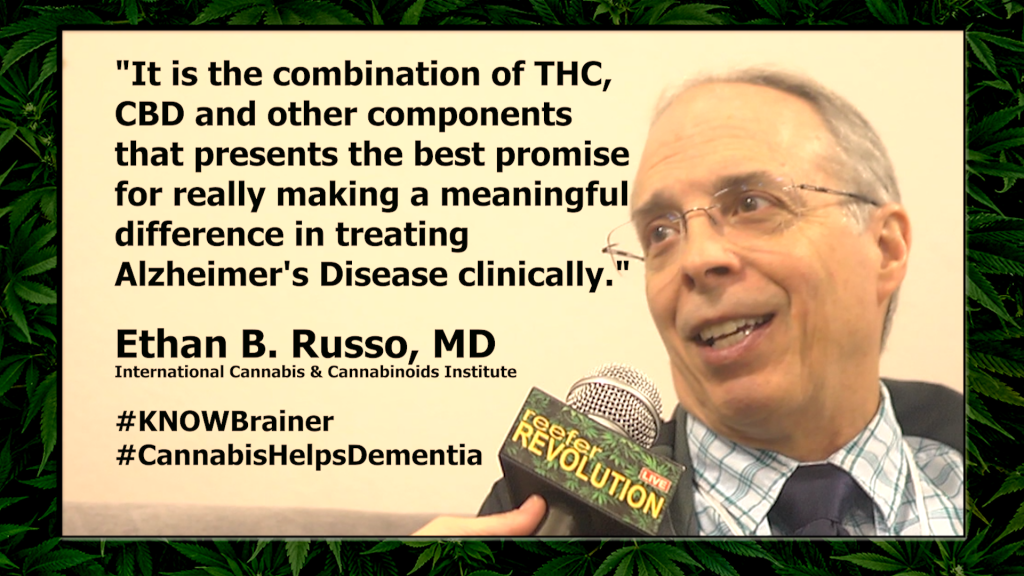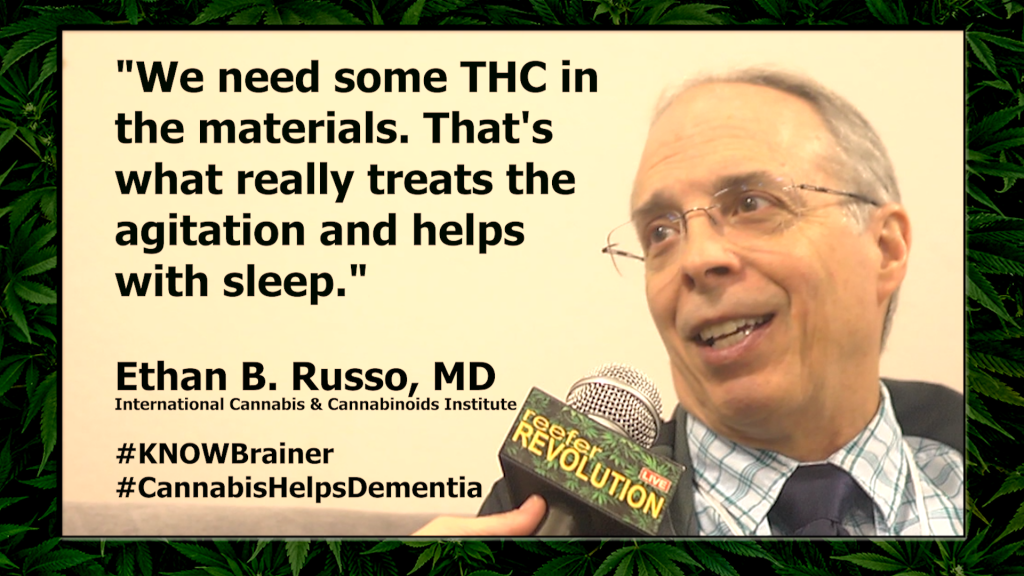Cannabis Therapy
Did you know the U.S. Department of Health has held a patent on cannabis since 1998 as “…neuroprotectants, for example in limiting neurological damage following ischemic insults, such as stroke and trauma, or in the treatment of neurodegenerative diseases, such as Alzheimer’s disease…” patent #6630507B1.
A simple Pub-Med search reveals study after study after study that cannabis eases the terrible symptoms of dementia better than anything else available on the market.* A documentary called “The Scientist” shows that every nursing home in Israel uses cannabis medicine for their elderly. Mainstream media sources show that there are a few facilities in Northern California and New York state that are also currently using full-spectrum cannabis oil with people living with dementia. 33 State Departments of Health list Alzheimer’s Disease or other neurodegenerative diseases on their qualifying conditions for medical cannabis.
By far, the most effective treatment for Mom’s Alzheimer’s was a 1:1 ratio of balanced, full spectrum Cannabis oil – and we tried everything available on the market since 2010: Zyprexa, Ativan, Seroquel, Depakote, Trazadone, Aricept and Namenda! There’s NO known risk of sudden death or risk of organ failure, like the other meds used (mostly off label) to treat Alzheimer’s (and/or related dementias) symptoms!
Full-spectrum Hemp oil naturally void of the psychoactive ingredient some are looking to avoid, is known to be helpful for some people, in some cases. But for people living with dementia, researchers and clinicians in the field seem to agree that people living with brain change need some THC in their medicine.
Dr. Ethan B. Russo, MD from the International Cannabis and Cannabinoid Institute sat down with us at TheEmeraldCup for some blunt talk about how #CannabisHelpsDementia

Read the entire article in Frontiers in Integrative Neuroscience
“Cannabis Therapeutics and the Future of Neurology”
October 18, 2018
[FTA]”…Initial trials of herbal cannabis for AD have begun sporadically, with a more focused effort in a California nursing home (Hergenrather, 2017). Patients were treated with a variety of preparations: THC-predominant (2.5–30 mg/dose), CBD predominant, and THCA, mainly in tinctures and confections. Marked benefit was reported on neuroleptic drug sparing, decreased agitation, increased appetite, aggression, sleep quality, objective mood, nursing care demands, self-mutilation and pain control.
Based on its pharmacology (Russo and Marcu, 2017), cannabis components may provide myriad benefits on target symptoms in this complex disorder:
- Agitation: THC, CBD, linalool
- Anxiety: CBD, THC (low dose), linalool
- Psychosis: CBD
- Insomnia/Restlessness: THC, linalool
- Anorexia: THC
- Aggression: THC, CBD, linalool
- Depression: THC, limonene, CBD
- Pain: THC, CBD
- Memory: alpha-pinene (Russo, 2011; Russo and Marcu, 2017) + THC
- Neuroprotection: CBD, THC
- Reduced Aβ plaque formation: THC, CBD, THCA
Thus, an extract of a Type II chemovar of cannabis (THC/CBD) with a sufficient pinene fraction would seem to be an excellent candidate for clinical trials (Lewis et al., 2018)…”

“Cannabis For Parkinson’s And Alzheimer’s Diseases – An Interview With Dr. Ethan Russo”
February 26, 2019
[FTA] “…The best results in PD were reported in a Czech study in 2004, in which patients ate raw leaves of cannabis for as much as three months and reported significant improvement in overall function, tremor, bradykinesia and rigidity, with few side effects…
The story in AD is even more intriguing. Both THC and CBD have been shown to interfere with the production of abnormal toxic matter in the brain of such patients. This is quite exciting, inasmuch as synthetic drugs designed for similar purposes have yet to advance in the clinic. Both THC and particularly CBD are known neuroprotective agents that hold the potential to slow or perhaps even halt the degenerative process. On the symptom side, THC as a single agent has proven beneficial in AD patients in reducing nocturnal agitation, improving sleep and appetite. Observations of nursing home patients in California with dementia have produced similar benefits as well as reducing the need for nursing intervention and amounts of other drugs…”
Dr. Jeffrey Hergenrather is successfully using cannabis medicine in three RCFEs in the Santa Rosa, CA area and was recently interviewed for Next Avenue:
Can Medical Marijuana Help with Dementia?
Some studies, and families, say yes; some experts emphasize caution
[FTA] ‘Kind of a Lifesaver’
“Dr. Jeffrey Hergenrather, a general practice physician based in Sebastopol, Calif., and recent past president of the Society of Cannabis Practitioners, has been consulting on cannabis medicine since 1997. During that time, he says he has helped hundreds of patients with dementia improve their quality of life with cannabis.
“Typically, I’ll get a call from a family after the nursing home staff has gotten to a point where a patient’s inappropriate behaviors are too difficult to handle, and they are in agreement about administering a cannabis medicine. I’ll do the evaluation and, as needed, give this as an order to the staff to dispense,” Hergenrather says.
The scientific literature lists 29 agitated behaviors – such as yelling, repeated questions and violent behaviors – all of which, unlike other conventional medicines, are very well-managed with cannabis, Hergenrather says.
“It really is quite impressive to utilize cannabis and then see the patients actually push away from their other medicines. They know what the other medicines do for them and they’ll say that they don’t want to take them. But they will take the cannabis because they feel relaxed and happy and calm, and maybe even a little euphoric,” he says.
“It’s been kind of a lifesaver,” Hergenrather continues. “The patients are happier, the families are happier and it greatly helps the staff because the behaviors are so much easier to manage.”
The Society of Cannabis Clinicians is a nonprofit educational and scientific society of physicians and health care professionals dedicated to the education and research support of cannabis for medical use. Its mission is to unite into one association, members of the various medical specialties and allied professionals, with this common purpose.
Coconut Oil/Medium Chain Triglycerides (MCTs)
1 cup coconut milk
Favorite fruits, frozen
Additional bit of coconut oil for good measure – to be sure enough fat is getting into the system
